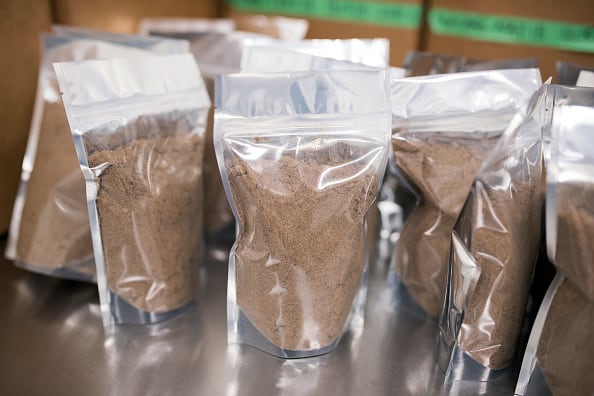CRIC, which stands for the Costa Rica Insect Company, was co-founded by Daniela Arias (who is also the start-up’s CTO) and CEO Alejandro Ortega.
The idea for the company was born around three years ago when Arias was studying nutrition and learned about the benefits of insect protein from both a health and sustainability perspective. Ortega, who has a background in business, suggested setting up a cricket farm.
CRIC claims to be the first company to industrialize the edible insect business in Central America and has developed a patent-pending incubator to scale up cricket production.
'A mild, nutty flavor'

The start-up manufactures the cricket flour by grinding whole, cooked crickets. It describes the cricket flour as a whole, unprocessed food (as opposed to an isolated protein source) that has a mild, nutty flavor.
Around two-thirds of the flour is protein - crickets contain three times more protein than beef - and it can be used to substitute between five and 30% of the wheat flour in any baking recipe.
The powder contains all nine essential amino acids and 15% more iron than spinach.
So far, the bulk of CRIC’s sales come from sales of cricket powder to food manufacturers but it is planning to launch a B2C line of products in December this year, starting with a multipurpose gluten-free flour with insect powder.
“Think of it as an Aunt Jemima with cricket powder,” said Arias. “You can do cookies, pancakes and other baked goods with it [that are] high in protein.”
CRIC currently sells its products on its own website, with a 25-kg bag of flour retailing for $1,000.
Next month, it will begin exporting for the first time with a shipment of 500 kilos of cricket powder to manufacturers in Mexico.
Barriers and next steps
Unlike in Mexico, however, insects are not a traditional food in Costa Rica, which means consumer acceptance can be a barrier.
“In Costa Rica, when you present whole insects to a consumer, they won't probably eat it,” Arias told FoodNavigator-LATAM. “However, when all the environmental and nutritional benefits of the insects are explained to the consumer and the fact that they can obtain all of them from the powder, they cannot wait to buy it and include it in their diet.
“That is why we are promoting insects as a food ingredient in powder [form] - to have a bigger impact and be appealing to more people in

the country and the world.”
Despite this 'yuck factor' obstacle, the biggest challenge for the start-up so far was obtaining the necessary regulatory authorizations in Costa Rica – Arias described it as “a long and tiring process”.
It has since obtained the necessary permits and is now looking ahead. In addition to increasing sales, the company is determined to spread the word about the benefits of insect protein.
This year, the pair presented at a TEDx event (see video below) in Costa Rica and, in September this year, CRIC will represent Costa Rica and the Central American region at the Future Agro Challenge in Greece.
“That is a very important event for us since it will improve our global recognition, network with other entrepreneurs, investors, and allies,” Arias said. “The next step is to scale up the company in a global setting and start exporting to Europe and other parts of the world.”

